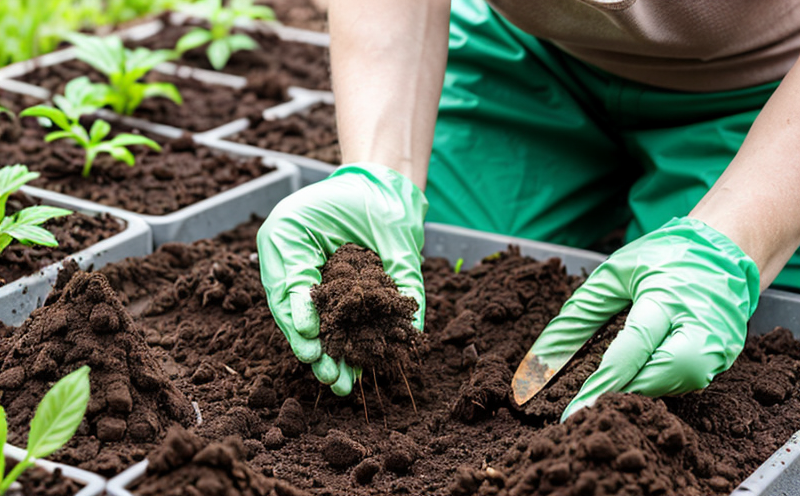UNE EN 13432 Compostability Testing of Gardening Plastics
The UNE EN 13432 standard is a crucial certification in the plastics industry, particularly for products intended to be used in gardening and outdoor environments. This standard ensures that plastic materials can decompose under industrial composting conditions, thereby minimizing environmental impact post-use. For companies developing or sourcing gardening plastics, compliance with this standard is essential for meeting regulatory requirements and enhancing brand reputation.
The testing process outlined by UNE EN 13432 involves several key steps: initial material characterization, biodegradation tests under controlled conditions, and the assessment of any remaining plastic residues post-composting. The objective is to ensure that the plastics degrade into carbon dioxide (CO₂), water, and biomass without leaving harmful substances behind.
Compliance with this standard not only facilitates easier market access in countries like the European Union but also contributes to sustainable practices by promoting the use of environmentally friendly materials. This certification can significantly boost a company's credibility among eco-conscious consumers and stakeholders.
The testing protocol is rigorous, ensuring that the plastics meet the stringent criteria for biodegradation within specific time frames and conditions. Compliance with UNE EN 13432 helps companies navigate regulatory landscapes and stay ahead of market trends by anticipating and meeting consumer expectations for sustainability.
For quality managers and R&D engineers working in this sector, understanding the nuances of this testing protocol is vital. Proper specimen preparation, adherence to standard procedures, and accurate data interpretation are crucial for successful testing outcomes. This knowledge empowers these professionals to innovate and develop products that not only meet but exceed regulatory standards.
The UNE EN 13432 certification also impacts procurement strategies by favoring suppliers who can provide materials certified under this standard. It ensures a consistent supply chain that aligns with sustainability goals, thereby reducing the risk of non-compliant products reaching end consumers.
Industry Applications
| Application Area | Description |
|---|---|
| Garden Furniture | Polyethylene (PE) and polypropylene (PP) composites used in garden furniture are tested to ensure they can decompose under composting conditions. |
| Biodegradable Mulch Films | Polyolefin blends designed for mulching purposes are evaluated to confirm their ability to break down into non-toxic residues. |
| Growing Medium Containers | Bio-based polymers used in containers for growing plants undergo compostability testing to ensure they contribute positively to soil health post-use. |
| Compostable Packaging | Polyvinyl alcohol (PVOH) and polylactic acid (PLA) blends intended for use as packaging materials are tested to comply with UNE EN 13432. |
Customer Impact and Satisfaction
- Enhanced brand reputation through compliance with international standards.
- Promotion of sustainable practices that align with consumer preferences for eco-friendly products.
- Easier market access in regions like the EU where regulations favor certified compostable materials.
- Increase in customer trust and loyalty due to transparent environmental commitments.
Competitive Advantage and Market Impact
Meeting UNE EN 13432 certification can provide a significant competitive edge by differentiating products in the market. Companies that comply with this standard may see higher sales volumes as they cater to increasingly environmentally conscious consumers. Additionally, early adoption of sustainable practices can position brands for future regulatory compliance and technological advancements.
The market impact is also notable, as certified compostable plastics contribute to reducing landfill waste and promoting circular economy principles. By investing in UNE EN 13432 testing, companies can align their offerings with global environmental initiatives, fostering long-term sustainability goals.





